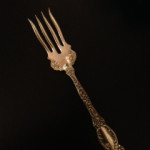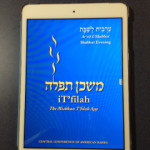 I love Israel. The landscape, the language, the food, mix of old world culture and hi-tech innovative breakthroughs, the mix of east and west, its mix of deep spirituality, irreverent atheism, passionate doubt, and zany mysticism. I love the mix of brash chutzpah and soul-searching analytical reflectiveness. I love that Israelis buy more books per capita than any other country in the world.
I love Israel. The landscape, the language, the food, mix of old world culture and hi-tech innovative breakthroughs, the mix of east and west, its mix of deep spirituality, irreverent atheism, passionate doubt, and zany mysticism. I love the mix of brash chutzpah and soul-searching analytical reflectiveness. I love that Israelis buy more books per capita than any other country in the world.
Israel is in many ways where I became an adult. After living in Israel for a year during college, I moved back upon graduation. It was there that I first lived in my own apartment, looked for a job, got a paycheck direct deposited into my account, figured out how to scrub a toilet, and learned to cook for myself. Israel was where I was able to explore my personal Judaism and realize that I didn’t have to go to rabbinic school in order to have a rich, fulfilling, Jewish life, and it was where I made the choice to not become a rabbi (yes, I later changed my mind again, but it was the right choice at the time).
Israel is my family, both metaphorically and literally. I married into a large, warm Israeli family twenty-four years ago. They have truly become my family over these years. When I worry abstractly about Israel, I worry concretely about them and their emotional and physical wellbeing.
And yet loving Israel doesn’t mean loving everything about it. Like any family, and I speak here of the metaphoric sort, not my actual family, there are those members I tolerate just because they’re family. And then there are those I can’t even abide. They stand for all that I stand against. You know what that’s like. Just because they’re family doesn’t mean you have to like them.
It’s been a long, painful summer.
I confess that I’ve been in a social media semi-hibernation mode this summer. I haven’t blogged and I’ve barely posted on FB or twitter. I’ve felt paralyzed, powerless, unable to say or do anything helpful or productive. It’s been shocking to watch the conversation, both domestically and internationally, devolve into black and white rhetoric, often laced with ancient anti-semitic tropes. People I love, people I admire and with whom I have important and deep relationships, have taken extreme positions on different sides of the spectrum. Blame is thrown back and forth, with any sense of context, nuance, and complexity absent from the conversation. In the name of maintaining peace within my own world and relationships, choosing shlom bayit over strife, I’ve chosen to not engage in those conversations.
As things heated up in Israel, we made a quick decision at the CCAR to organize a solidarity mission of rabbis to Israel in order to both show support to our friends, family, and colleagues, as well as to provide our rabbis with a more nuanced sense of the reality there.
It was a somber time to be there, and of course the tension has only increased. We set up meetings with a varied group of people in different parts of the country. We met with Knesset members and soldiers, activists and negotiators, reporters and scholars. Many of those we spoke to while there voiced deep concern for the future of Israel’s soul, and worries about growing extremism on all sides. A number of speakers talked about the national soul-searching that must come when some semblance of stability is restored.
 In a prayer service with our Israeli colleagues one morning, we read several new prayers written by Rabbi Yehoyada Amir. One is a Mi Sheberach for those wounded, which recognizes the suffering of those of both nations, and the other is a Mi Sheberach for the members of the IDF which contains a hope that they maintain their highest values. The service was followed by a conversation with our local colleagues, who shared what they are going through, trying to serve and support their communities while in the midst of fear and concern for their own families and still continuing their work in areas like human rights and peace. Their stories were moving and powerful – and in some cases very painful.
In a prayer service with our Israeli colleagues one morning, we read several new prayers written by Rabbi Yehoyada Amir. One is a Mi Sheberach for those wounded, which recognizes the suffering of those of both nations, and the other is a Mi Sheberach for the members of the IDF which contains a hope that they maintain their highest values. The service was followed by a conversation with our local colleagues, who shared what they are going through, trying to serve and support their communities while in the midst of fear and concern for their own families and still continuing their work in areas like human rights and peace. Their stories were moving and powerful – and in some cases very painful.
Like so many of those we spoke to, our colleagues also talked about being torn up by the deaths and suffering of the Gazan civilians, even as they grieved the deaths of the young Israelis killed in the conflict. In the face of fear and pain, they refuse to let go of empathy and give in to hate. They are living out what we are taught in Pirke Avot: in a place where there are no human beings, be a human being.
I am worried. I worry on Israel’s behalf, and I worry about Israel. I worry about what will happen to Israel, and I worry about the choices Israel will make. Even as we witnessed the pain and worry of our colleagues and friends and relatives, we also were grateful to see flashes of hope here and there. There are many who think that the questions being asked in the public sphere within Israel will lead to a better future. Even in the midst of new waves of hatred, there are new partnerships being created by those seek peace and coexistence, and are concerned with issues of human rights. So I continue to hold on to hope in the midst of worry.
I would guess that I am not alone in struggling to articulate something meaningful about Israel for the coming high holy days, words that express both deep love for Israel along with concern, a sense of complexity, and somehow a message of hope over despair.
With issues this big and complicated, sometimes prayers and meditations are a helpful way to begin to get a hold of concepts that otherwise feel almost impossible to grasp.
Toward that end, I offer some readings related to the events of this summer which you are welcome to use or share in your communities. I ask only that you use them with attribution.
Here is a poem written by the liturgist Alden Solovy, inspired by a workshop he held with us during the recent CCAR trip.
When these ancient stones whisper to us,
They yearn for our steadfast love.
They yearn for us to remember
How Israel walks through history,
With justice and wisdom,
With righteousness and mercy.
God of our fathers and mothers,
Let compassion enter the land.
When these ancient stones whisper to us,
They yearn for our devotion and our service.
They yearn for us to remember the vision of our ancestors,
Their strength,
Their love of God and
Their love for our people.
God of generations,
Let tranquility enter the land.
When these ancient stones speak to us,
They yearn for peace.
They yearn for us to learn
How to turn swords into plowshares,
And spears into pruning hooks.
They yearn for us to remember
That we have been outcast on foreign soil,
That we are bound by Torah to guard the land
And to protect the stranger in our midst.
God of all being,
Let joy enter the land
And gladness enter our hearts.
Two Readings by Rabbi Yehoyada Amir, the Acting Chairperson, MARAM – Israel Council of Reform Rabbis, translated by Ortal Bensky and CCAR staff. (See the Hebrew)
A Prayer for the Wounded
May the One who brought blessings to our fathers Abraham, Isaac, and Jacob, and to our mothers Sarah, Rebecca, Rachel, and Leah, bring blessings to the wounded of both nations who lie on their sickbeds. Instill in their caring physicians hearts of wisdom and good sense, in order to restore them to full health and give them encouragement. Bestow God’s holiness upon their relatives and loved ones in order to stand with them in this time of need and to give them love and faith. Strengthen their spirits to chose life in times of pain and suffering. Hear their prayers and fortify them so that they will continue to lead lives of health, creation, joy and blessings. And together we say: Amen.
A Prayer for the Israel Defense Forces
May the One who brought blessings to our fathers Abraham, Isaac, and Jacob, and to our mothers Sarah, Rebecca, Rachel, and Leah, bless the soldiers of Israel’s Defense Forces, and all who stand guard in order to protect the Land of Israel. Give them strength against our enemies, and strengthen their spirit to preserve their highest values at this time of trial. Protect them from all troubles and afflictions, so that they will return in peace and joy to their families and friends, and may they prosper as human beings and citizens in their land.
A version of this post appeared previously on the CCAR’s RavBlog.org.



